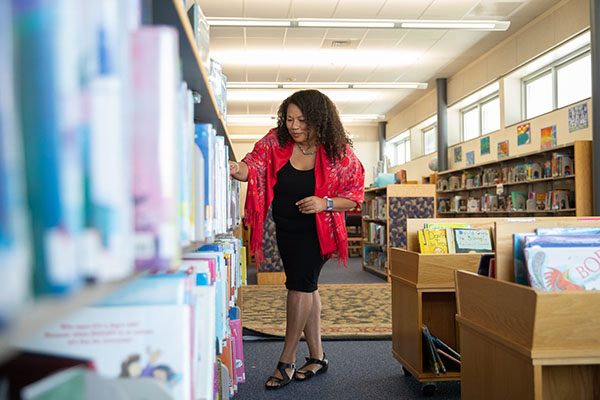

Adult learners, those who are age 25 and older, are becoming more and more common on American college campuses. In fact, there are about 6.6 million adult students in college today. If you’re considering joining this growing number of adults in pursuit of higher education, the tips below can help you make the transition.
Best Advice for Adults Going Back to College
 As you start looking for schools to apply to or online programs to help you earn your college degree, you will find plenty of advice and tips for going back to college as an adult. Weeding through all of this can be challenging, so here are 11 of our favorite tips to help adult learners find success:
As you start looking for schools to apply to or online programs to help you earn your college degree, you will find plenty of advice and tips for going back to college as an adult. Weeding through all of this can be challenging, so here are 11 of our favorite tips to help adult learners find success:
- Setting Goals for Yourself
To stay on track with your college education, you will need to set goals. Consider setting SMART goals. These are goals that are:
- Specific
- Measurable
- Attainable
- Relevant
- Time-based
Set small goals throughout the semester that will add up to big accomplishments and the completion of your projects by the end of the semester.
- Building a Strong Support Network
If you are returning to college or attending college for the first time as an adult student, you are in for a challenge and will need a support network around you.
It will be important to have some other adult learners who can help you with your projects or serve as study buddies.
Get someone you can rely on to help with babysitting or pet sitting when you are in a time crunch with school. Enlist your partner’s help to chip in more to cover your household responsibilities for a short time while you’re studying.
- Creating a Comfortable Work/Study Space
Adult learners often find their households to be distracting. Home life, especially if you have children, offers many responsibilities that pull you away from your studies.
One way to limit distractions is to set up a comfortable work or study space. Set aside a desk area in your home that is solely used for schoolwork, and make sure you are focused when you go there. See if you can section it off so that you have minimal disruptions while working.
- Getting Organized
Organization will be key to your success as an adult student. Organize your paperwork for financial aid, schedules and syllabi. Get a digital and paper calendar to track deadlines. Keep a detailed schedule to ensure you have the time you need to work on your school and professional work.
- Preparing for Hard Work
Students who are returning to college as adult learners are going to be determined to work hard. Balancing school with a career and family is not for the faint of heart. If you can get your mind ready to work hard for this short season, you will be prepared for success.
- Connecting with Other Students
One of the best ways to make the most out of your college experience is to connect with other students. Not only can they be helpful and supportive during your days in school — giving you someone you can call if you lose your notes — but they also become part of your professional network. That professional network is going to help you with career prospects after graduation, so take some time to build those relationships.
- Sharing What You’re Learning in School with Your Job
To be successful as an adult student, you are likely going to need the understanding of your boss and coworkers. One way to get them on your side is to share what you are learning with your coworkers and supervisor.
Show how your continuing education is bringing some benefit to your employer, and they will be more likely to give you some flexibility when you need it. It helps demonstrate you are an asset to the company, which might put you in line for a promotion earlier than you expected.
- Using All the Resources Around You
As you start to prepare to go back to school, you will find there are numerous resources around you.
Do you need a refresher on Microsoft PowerPoint or Excel? Check your local public library for free or low-cost classes for adults.
Do you need help paying for college? Reach out to the financial aid department to learn about any available programs for adult learners to help with these costs.
Could some tutoring help you in a particularly challenging class? Talk to your department head at your school to see if campus-based tutoring is an option.
As you look around, you will find plenty of resources at your disposal.
- Taking Time to Listen and Learn
Remember that you are going back to school to learn, so make sure you take the time to do so. Listen to your instructors and fellow students. Take in all the information you can, and make sure you are learning as you go through this process. You want to graduate with new knowledge and skills that will help you advance your career.
- Giving Yourself Grace
Going back to school as an adult while working is not easy; you are going to have to let some things slide.
Maybe your house doesn’t stay as clean as it once was, or perhaps you are not able to attend all your child’s soccer games. Maybe you cannot achieve the GPA you did when you were young and had fewer responsibilities. Give yourself grace in these areas.
- Committing to Your Mental Health
The best advice for adults going back to college is this: Take some time for yourself. It’s easy to get burnt out while you attend school while trying to balance home and professional life simultaneously. Make sure you take time to rest and take care of your mental health while balancing all these demands.
Is Going Back to College Worth It?
If you want to finish your degree, advance your career or add to your existing knowledge base, going back to college is absolutely worth it. There are many perks of going back to school, and with these tips, you can do so more easily, even as a busy working adult.
Metropolitan State University of Denver has a number of excellent programs designed specifically for adult learners. We offer a number of online programs that provide the flexibility adult learners need as well as campus-based programs for those who have the time and freedom needed to attend school face-to-face. Talk to one of our friendly admissions counselors to learn more about these programs and see which is the best fit for you.
